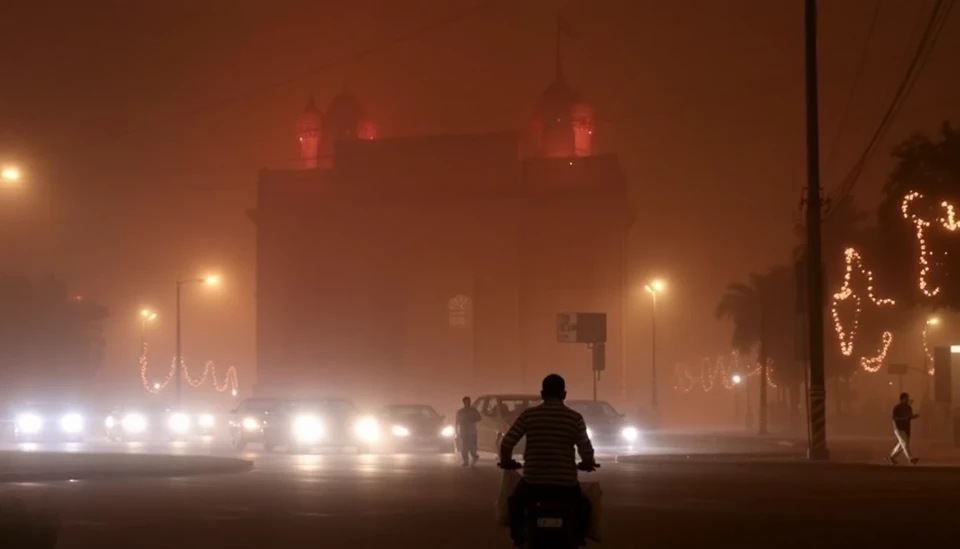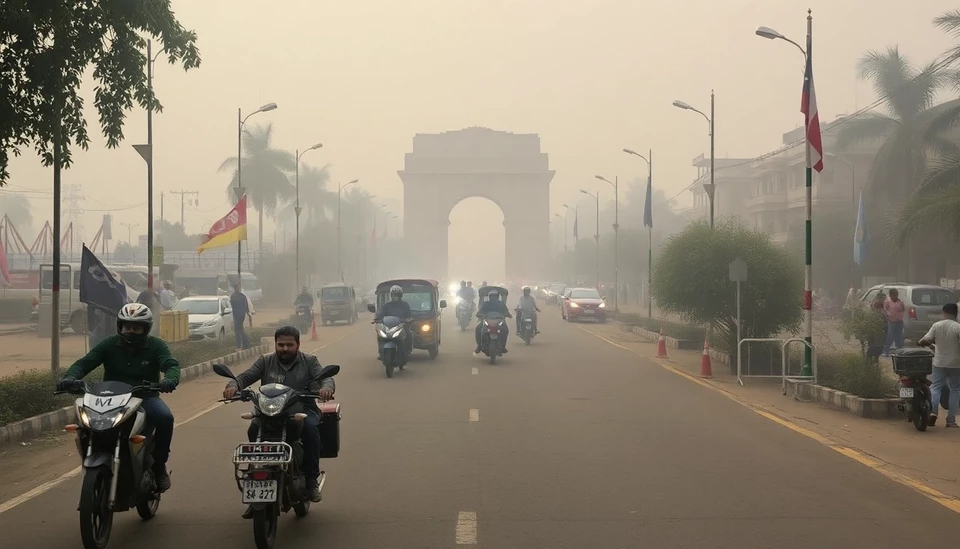
As India prepares to celebrate Diwali, the Festival of Lights, the capital city of Delhi is grappling with a severe air pollution crisis. In recent days, air quality levels have plummeted, resulting in hazardous conditions that have raised alarms among health officials and environmentalists alike. This year’s Diwali festivities are overshadowed by the urgent need for action to combat the poisonous smog that blankets the region.
Typically, the onset of winter in northern India brings a seasonal spike in air pollution, largely due to increased crop burning, industrial emissions, and vehicular exhaust. However, this year, factors have converged to create an exceptionally dire scenario. Meteorological data indicates that stagnant weather conditions are preventing the dispersal of pollutants, exacerbating the already critical air quality levels.
Recent studies have indicated that particulate matter (PM2.5) concentrations have surged dramatically, surpassing safe limits. The alarming rise in these tiny atmospheric particles poses significant health risks to millions. Experts are warning residents to limit outdoor exposure, especially vulnerable populations such as children, the elderly, and those with pre-existing respiratory conditions.
Delhi's government is urging citizens to exercise caution during the festivities and is advocating for the use of eco-friendly alternatives to traditional fireworks, which are a significant contributor to air pollution during Diwali. The administration has emphasized the importance of adopting sustainable practices to mitigate this year's impact, encouraging citizens to participate in activities that celebrate the holiday without intensifying the pollution crisis.
In addition to local efforts, residents are increasingly utilizing air quality monitoring apps and resources to stay informed about real-time pollution levels. These tools can assist in making educated decisions about outdoor activities and indoor air quality management. With many families looking for alternatives to firecrackers, the demand for eco-friendly decorations and noise-free celebrations is surging.
Non-governmental organizations and concerned citizens are also leading initiatives to clean up the environment in the aftermath of the celebrations. Community-led tree planting drives and awareness campaigns aim to instill a sense of responsibility towards the environment among the public, fostering a collective effort to address the pollution crisis beyond just the current festive season.
The interplay of tradition and public health continues to reignite discussions on the need for comprehensive air quality policies in India. As Delhi navigates through this period of celebration amidst crisis, it’s clear that both immediate and long-term solutions are essential for ensuring that future celebrations can be enjoyed without the threat of toxic air.
The situation remains pressing, and as Delhiites look forward to celebrating Diwali, their hope for clear skies and cleaner air reflects a broader desire for sustainable living in one of the world’s most polluted capitals.
In the wake of these events, it is crucial for all stakeholders to come together and rally behind effective policies and practices that prioritize both tradition and the health of the community.
###
#DelhiAirPollution #Diwali2024 #CleanAir #EcoFriendlyDiwali #HealthAwareness #SustainableCelebrations #AirQuality #FestivalOfLights
Author: Sophie Bennett
